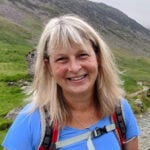Sandwiched between two of England‘s most beautiful National Parks – the Lake District and the Yorkshire Dales, – it’s no wonder Kendal is more than just a stopover on the M6 motorway. This market town has enjoyed a rich tapestry of Roman legacies, medieval castles and Quaker heritage, not to mention its wool, snuff and other trades. Today, the settlment’s spirit of adventure lives on, with visitors appreciating not only what Kendal has to offer, but also the tranquillity of the nature and green spaces that surround it. Read on to learn more about this perfectly-positioned town.
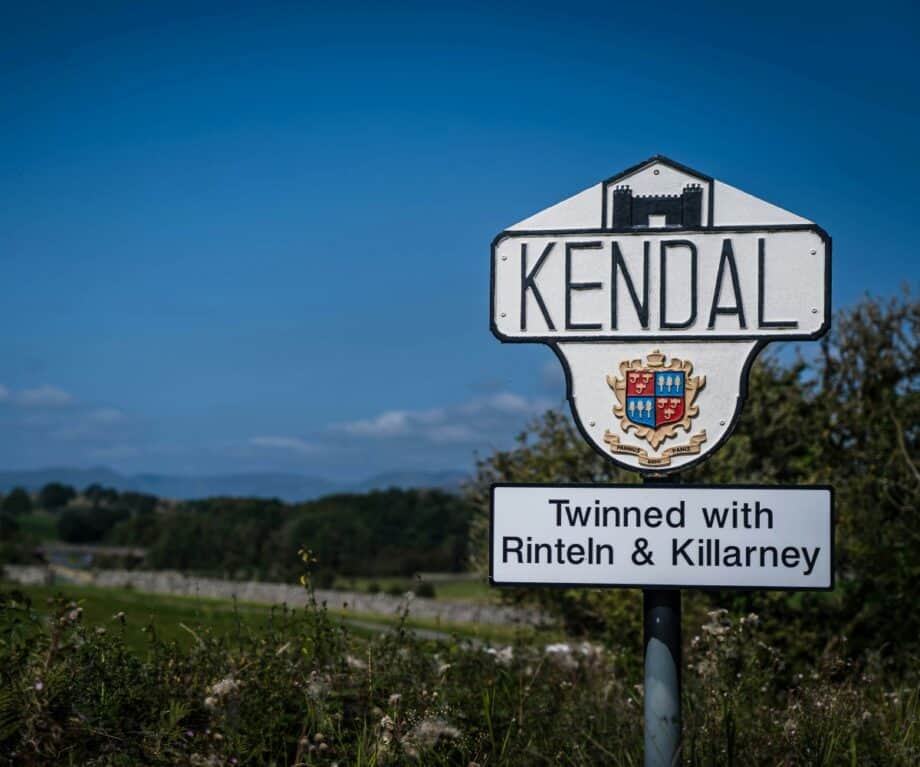
Alternative names
Kendal is sometimes affectionately known as “Ye Auld Grey Town” – despite being surrounded by lush, green fields – since many of the homes and buildings are made from a grey limestone. It is also often referred to as “The Gateway to the Lakes” because of its proximity to the Lake District National Park – it’s often the first town you’ll pass if you’re arriving by road or rail. These nicknames highlight Kendal’s historical charm as well as its role as a starting point for exploring the beautiful Lake District.
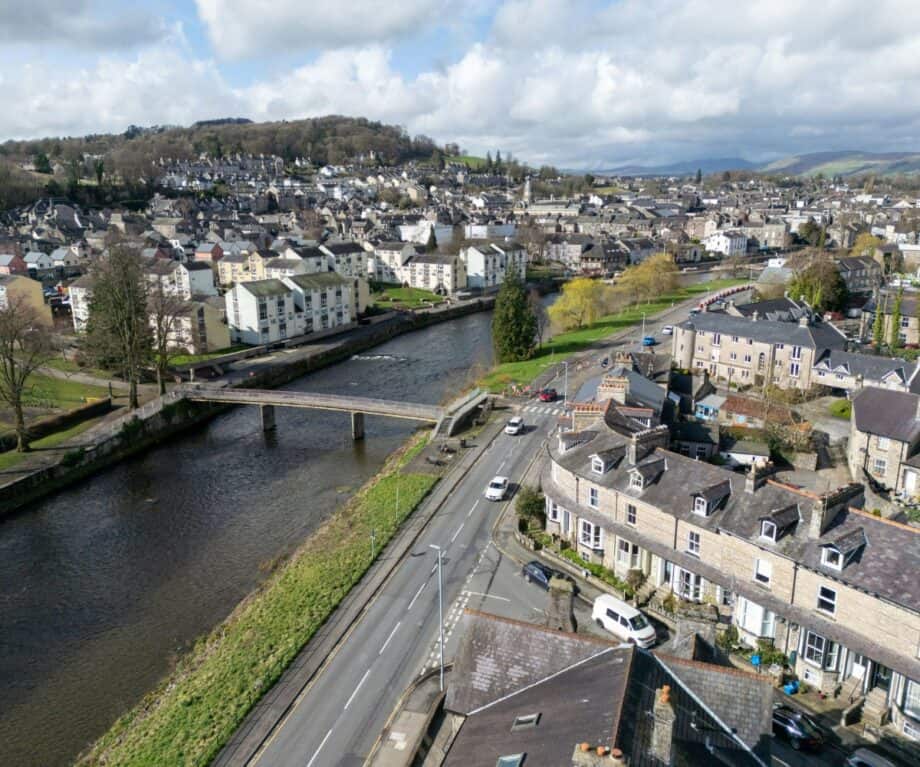
Kendal Mint Cake
Kendal is perhaps best known for Kendal Mint Cake, a sugary confectionery that was used on the first ever successful ascent of Mount Everest in 1953, as well as by Sir Ernest Shackleton in the Antarctic. Legend has it that it was discovered by accident when Joseph Wiper tried to make a clear glacier mint in 1869. You can buy it at a number of shops in the town and it comes in a variety of different forms – white, brown or chocolate-coated.
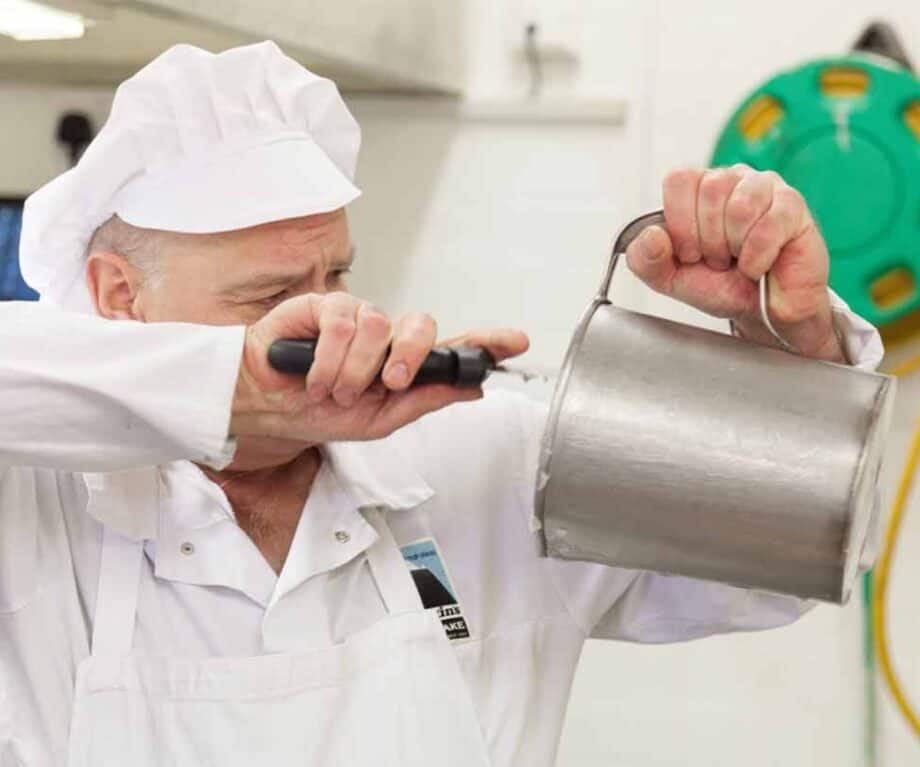
Kendal Castle
Kendal Castle is a historic ruin dating back to the 12th Century which you can visit on foot. It played a key role in defending against raids and invasions over the years, including during the Scottish Wars of Independence. The Parr family lived there from the early 17th Century and it is thought that Catherine Parr, the sixth wife of Henry VIII and the only one to survive him, could have been born there. Kendal in fact had two castles, the other being a wooden motte and bailey fort (now replaced by a monument) on the opposite side of the River Kent.
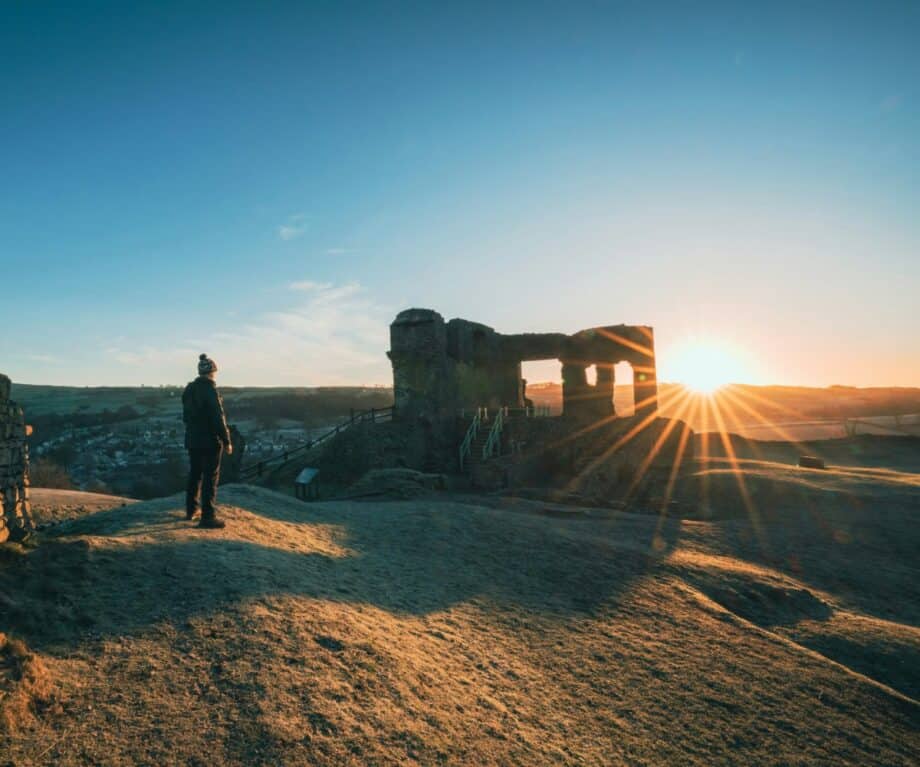
Kendal Green
Historically, Kendal Green was a type of green cloth made in Kendal, that gained fame through its association with the legendary outlaw Robin Hood, known for being clad in his distinctive green attire. It is mentioned in various pieces of literature. A little confusingly, there is also a place in Kendal called Kendal Green (the name likely referring to the open green space there rather than the cloth) which is where Alfred Wainwright (who created the famous pictorial guides to the Lakes) once lived.

The Brewery Arts Centre
Housed in a former brewery, this dynamic arts centre is a cultural gem, offering a wide range of events, from theatre and live music to cinema and exhibitions, making it a vibrant hub for the arts in Kendal. Used by both locals and visitors alike, it hosts everything from talks to comedy nights, art exhibitions to theatre and dance, and is also home to a bar and restaurant.
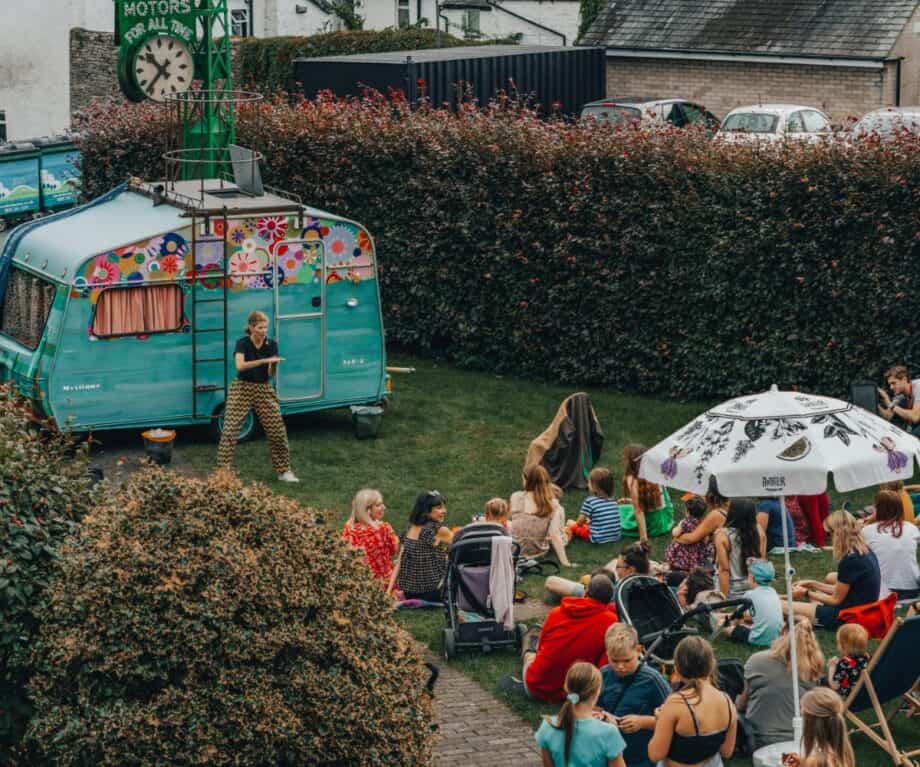
Market charter
King Richard I granted Kendal the right to hold a weekly market in 1189. The granting of the charter heralded the start of the town as we know it today. Kendal continues to host traditional outdoor weekly markets on Wednesdays and Saturdays, offering a variety of goods from local produce to crafts and clothing. There’s also a regular farmers’ market, which takes place on the last Friday of each month.
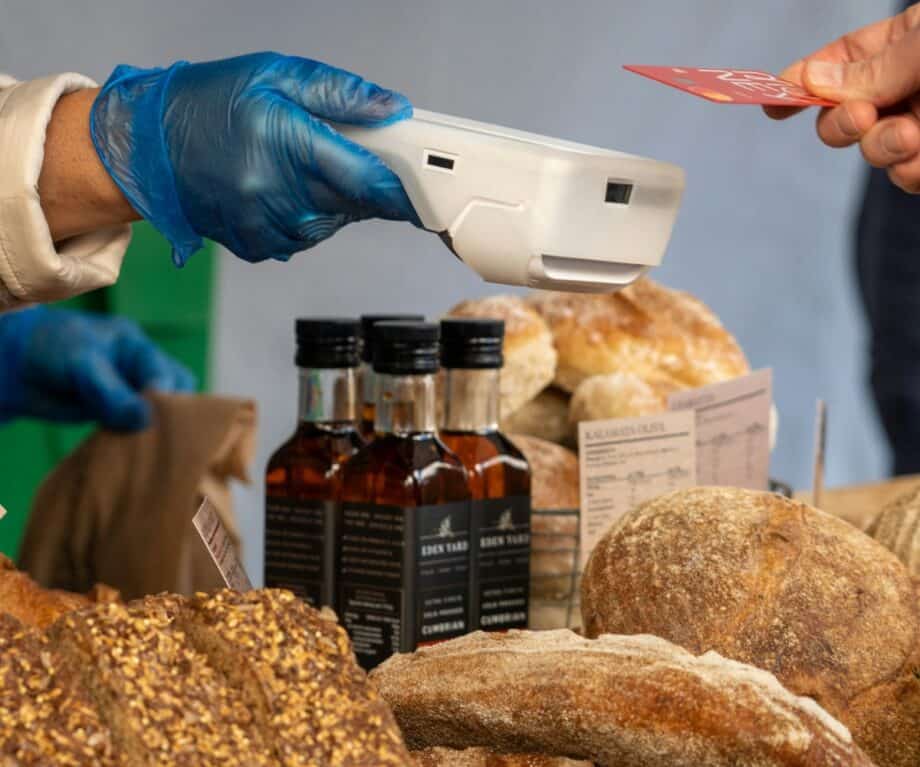
Quaker heritage
In the 17th Century, at a time of significant social upheaval, Kendal developed as a centre for Quakerism. George Fox, an English Dissenter who rebelled against the religious and political authorities of the time, founded the Religious Society of Friends (also known as the Quakers). He preached all over the country, including in Kendal, and must have had quite an impact since the Quakers in the town were actively involved in various social reforms, including the abolition of slavery, prison reform, and the promotion of education. Even today, Kendal’s Quaker Tapestry Museum showcases embroidered panels depicting the history of Quakerism and its impact on society.
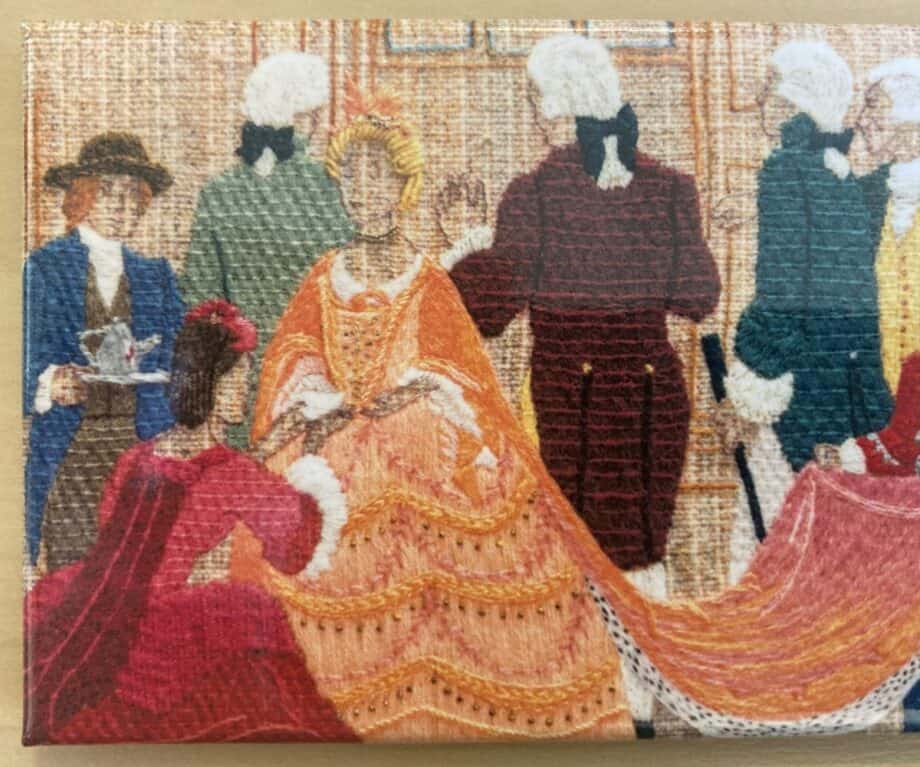
Snuff trade
In the 18th century, Kendal became a prominent centre for the production of snuff, a finely ground form of tobacco that is sniffed through the nose (but that is less fashionable nowdays). The industry was pioneered by the renowned Kendal Brown snuff, which became highly popular across Britain for its unique quality and distinctive aroma. The production process, which involved grinding and flavoring tobacco, was perfected by local manufacturers. Look carefully when you visit and you may still see signs of Kendal’s snuff industry today.
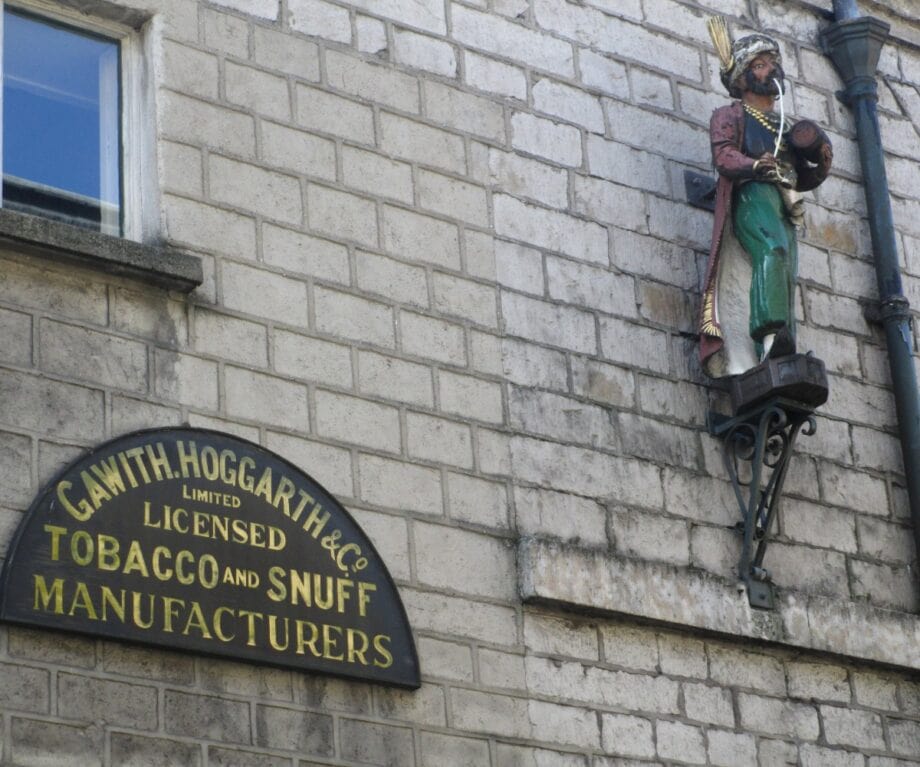
Festivals and events
Kendal hosts a variety of festivals throughout the year. These include the Kendal Torchlight Carnival, the Lakes International Comic Art Festival and, on the outskirts of the town, the Westmorland County Show and the Cumbrian Wool Gathering. Most notable of all, though, is the Kendal Mountain Festival, which is the world’s largest mountain film festival, attracting adventurers and filmmakers from around the globe, not just to see incredible films but also to visit the event’s temporary ‘basecamp’ where numerous outdoor industry names come to exhibit.
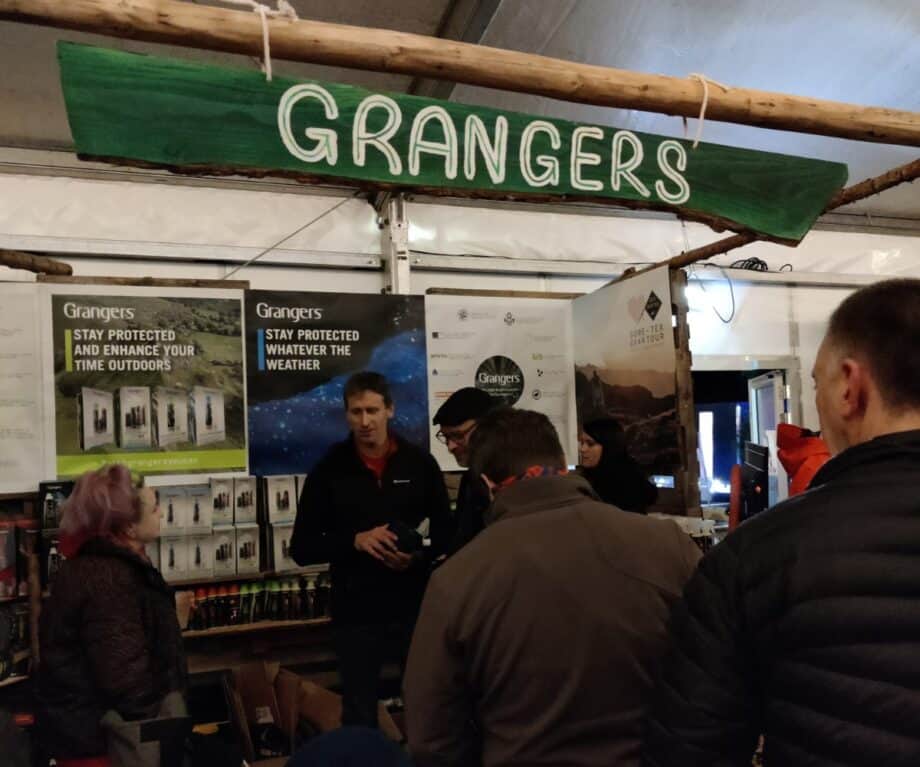
Kendal’s coat of arms
Kendal’s coat of arms is rich in symbolism with its gold background depicting a cowhide whilst the teasel and bale hooks found in each of the sections of the shield represent the wool trade. The town’s motto, pannus mihi panis, is often translated as ‘wool is my bread’, underlining the importance of an industry that supported the people of this busy town for centuries.
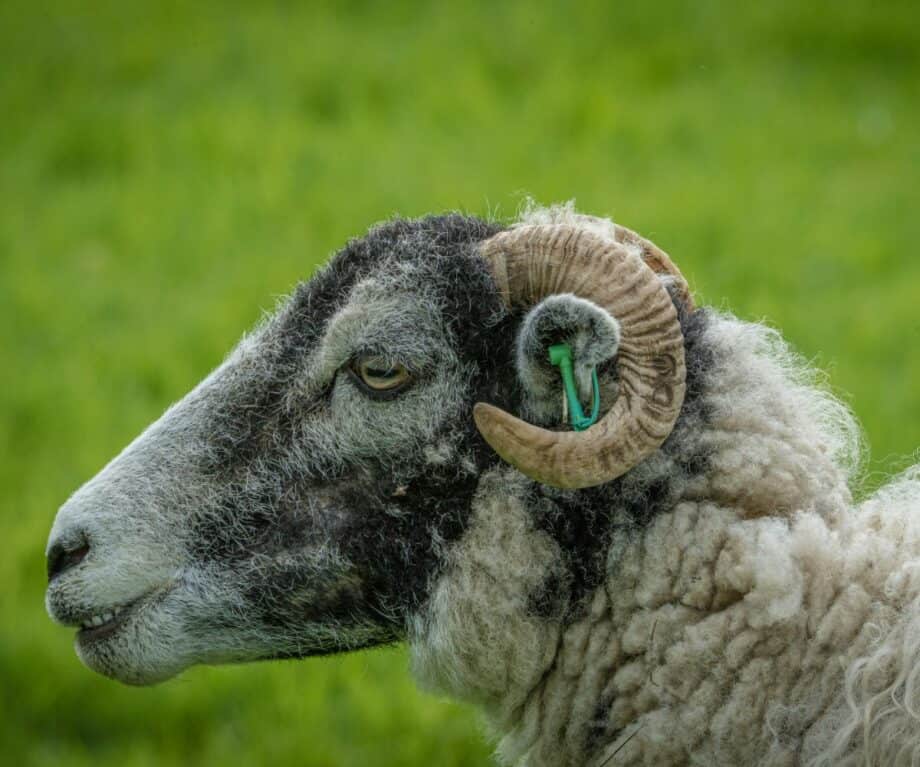
Did you enjoy this article?
Receive similar content direct to your inbox.
Please enable JavaScript in your browser to submit the form


